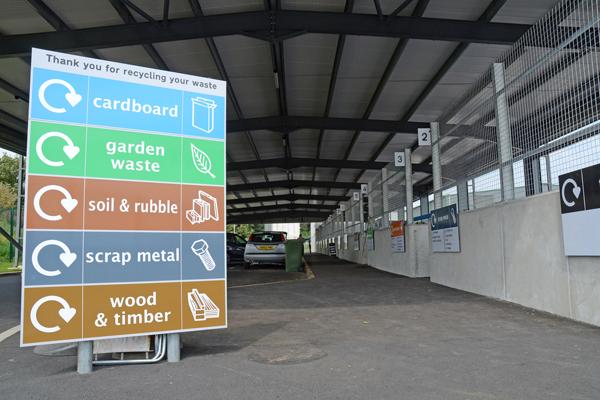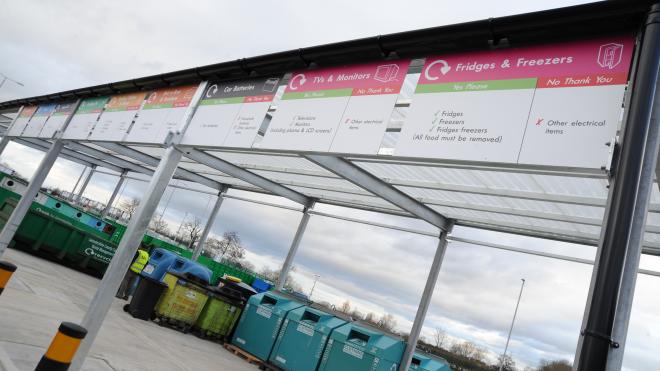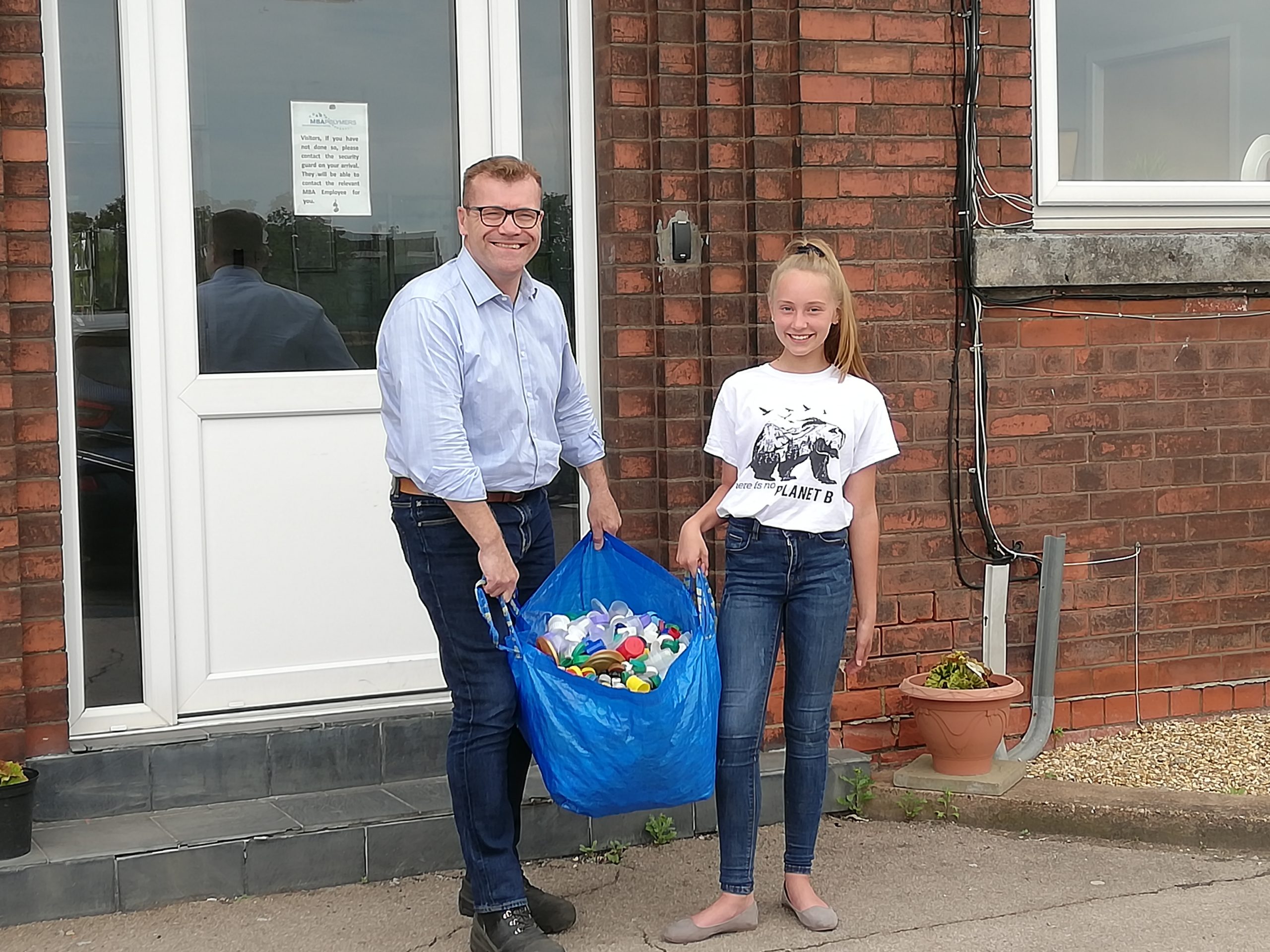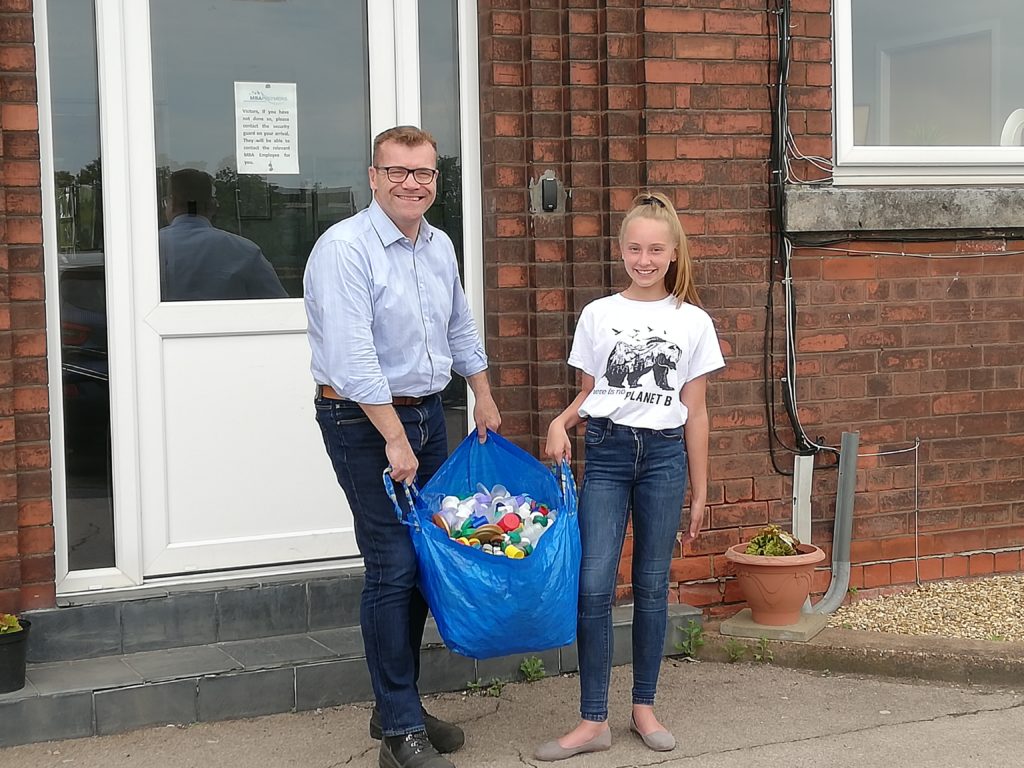Gateshead tightens rules on HWRC-use
Gateshead council has tightened rules on its Household Waste Recycling Centre (HWRC) to prevent trade waste being deposited at sites.

Residents will be required to apply for permits to visit HWRCs in vans, pick-up trucks, commercial vehicles or with a trailer. Up to 12 permits will be available per-vehicle, per-year, although they are issued free of charge.
A length restriction is being relaxed though – the rule had meant that no vehicle over 5 metres could visit the HWRC, but this has been extended to 5.5 metres to allow ‘modern leisure vehicles such as four door pick-ups’ to dispose of their waste.
Colin Huntington, acting strategic director for communities and environment, said the rules should prevent abuse of the HWRCs by businesses and brought Gateshead into line with facilities provided by neighboring councils.
He added: “Household Waste and Recycling Centres are offered free of charge for residents to dispose of their domestic waste. They are not provided at the expense of the Council Tax payer for businesses to use for the disposal of their commercial waste.”
Last year a roofing firm was fined £233 with £250 costs for illegally depositing waste at a HWRC. It is illegal for commercial enterprises to use a HWRC – they must use a licensed waste carrier instead.
Iceland’s reverse vending machines collect over 1m bottles
Food retailer Iceland says it has collected over 1 million plastic bottles through its reverse vending machines since May 2018.

The vending machines were installed as a trial in five stores across the UK – Fulham, Mold, Musselburgh and Wolverhampton, as well as Belfast from January 2019. The Wolverhampton machine was moved to Leeds in July this year. 1,000,000 bottles equates to roughly 30 tonnes of plastic collected through the scheme.
During the trial Iceland found that 96% of customers supported reverse vending machines and believed they should be rolled out to all retailers. 67% of people using the machines cited environmental concerns as their main motivation and 75% believed the introduction of 20p deposits on plastic bottles would be a good idea.
Richard Walker, managing director at Iceland, commented: “The results from our reverse vending machine trials highlight the growing demand from consumers to have a deposit return scheme introduced across the UK.
“Iceland was the first retailer to trial reverse vending machines and we believe the customer feedback we have received shows that our simple model of accepting all sizes of plastic drinks bottle – and extending this to include drinks cans – is the only sensible way to roll out a deposit return scheme nationally.”
Leicestershire HWRC to close for 12 weeks
A Leicestershire Household Waste Recycling Centre (HWRC) is to close for 12 weeks from 2 September.

The Hathern Road site will undergo necessary drainage work, as well as maintenance to other areas of the site. It is expected to re-open on 25 November.
Permits for the site will be accepted at other Leicestershire HWRCs during the closure.
Blake Pain, cabinet member for environment and transport, said: “We apologise in advance for any inconvenience this temporary closure will cause.
“We would encourage people to visit our website to find their closest alternative site, and to think about when they plan to visit, as nearby sites may be busier than usual.”
75% of Britons ‘don’t repair’ household appliances
More than 75% of British people do not attempt to fix broken household appliances themselves.

Research by online spare parts retailer eSpares suggests that most UK residents prefer to throw items away than try to repair them – often because they believe repairs are not cost effective. One in five respondents argued that manufacturers do not make it easy to fix appliances.
Commenting on the survey of 5,000 people, Ad Casey – head of brand at eSpares – said: “Our findings indicate that real change is needed to encourage more repairs. This change can only be made if the support is there to give customers the confidence and knowledge to fix repairable appliances.
“This is why we have launched our #FixFirst campaign – a national initiative that provides householders with comprehensive information on how to fix appliances and save money.”
Mr Casey estimates that if 10% more appliances were fixed 100,000 tonnes of waste could be prevented.
The eSpares online Advice Centre features more than 500 ‘how to’ videos, 700 fault fix articles and 9,000 appliance manuals, all of which help consumers to #FixFirst.
MBA Polymers UK supports local recycling ‘champion’
Plastics recycler MBA Polymers has accepted a donation of over 3,000 bottle tops from a local recycling ‘champion’.

Georgina Dobbs visited MBA Polymer’s Worksop plant and find out how her bottle tops would be processed and compounded into a new polymer. She is keen to help the company promote recycling in the local area, especially at schools.
Georgina said her visit was “an eye-opener” and asked MBA Polymers if they would open a drop-off point for members of the public who want to recycle items such as bottle tops.
Darren Glew, Operations Manager at MBA Polymers UK, said: “We are incredibly proud to support Georgina in her drive to help protect the planet and manage plastic pollution in the local environment.
“It’s encouraging for our business to have young people like Georgina interested in how we develop waste plastic into polymers and to have the opportunity to show her around our plant.”
Mr Glew added that the company had begun to work with schools to offer educational talks and visits in order to build on the work they had done with Georgina.











Subscribe for free